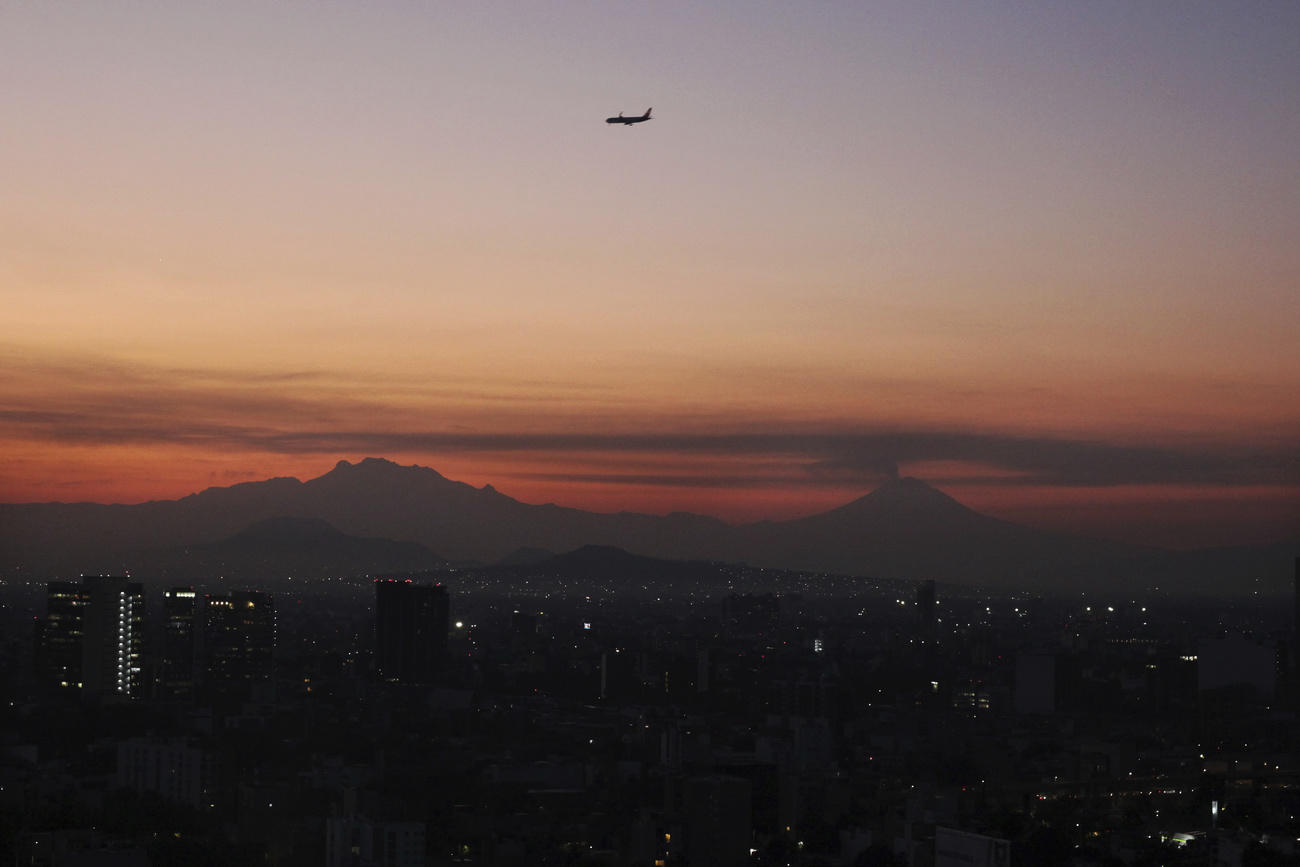Mexico – a new (direct) democratic powerhouse in the Americas?

An overview of the latest Swiss and international democracy news from our direct democracy reporters.
Reaching Mexico City in the evening is like descending into an enormous sea of lights – albeit a sea of lights situated more than 2,200 meters above sea level.
The old-fashioned Benito Juarez airport in the centre of the city welcomes passengers as Tempelhof airport in Berlin used to once upon a time, when incoming planes almost touched the TV antennae of surrounding residential blocks before touching down.
Both airports also share something else – their fates have been largely decided by public vote. In Tempelhof, a 2008 popular vote repurposed the airport to become an urban oasis, while in 2014, a further vote agreed not to redevelopExternal link it again.
In Mexico, meanwhile, after being elected in July last year, President Andrés Manuel Lopéz Obrador (sometimes known as AMLO) put the airport to a public vote last autumn. In this exercise – a “public consultation” organized by a private foundation which back in 1999 had also conducted such a vote for the Zapatista movementExternal link – most participating citizens voted “no” to a multibillion new airport project outside the 25 million-strong Mexico City area.
Yes – modern direct democracy is on the cards in the worlds tenth-most populatedExternal link country. In fact, Mexico is officially called the “United States of Mexico”, and the 2 million-square kilometre federation is composed of 32 autonomous statesExternal link hosting a diversity of ethnic groups speaking no less than 68 different official languages.
In recent years these states have introduced more than 250 legal designs or procedures stemming from initiatives and referendumsExternal link, making it a world leader when it comes to incorporating forms of citizen participation into systems of government. However, the big challenge is to reconcile two very different types of decision-making processes which are now colliding.

As Mexico City mayor Claudia Sheinbaum said this week when welcoming local leaders from across the world to an assembly of the International Observatory of Participatory DemocracyExternal link: “we are not only one of the most participatory, inclusive and happy places in the world”, she wrote on Twitter. “We have also all the big problems”.
Sheinbaum’s insights are important, and reflect the fact that the president – her ally – prefers top-down plebiscitarian forms of public consultations in a political environment where all the tools for a proper bottom-up process of citizen participation are nevertheless at hand.
At the moment, official institutions – including election authoritiesExternal link at the federal, state and local level – non-governmental organisations, and academic institutions are playing a critical role in fostering direct democracy. They increasingly support active and engaged citizens to learn about their rights and how to use them, and the results are often positive.
On November 24, the citizens of the city of ChihuahuaExternal link voted in a first popular referendum – regarding street lighting – which attracted nationwide attention.
“We showed all Mexicans that you do not need to be a president or mayor to make true participation possible”, says Carlos Olvera, one of the members of the Chihuahua referendum committee.
It will be highly interesting to follow the developments in Mexico in the years to come, which will undoubtedly have great importance for democratization not only in this country of more than 130 million people but all of the Americas.
It could become the new powerhouse for direct democracy in this part of the world.
By Bruno Kaufmann, swissinfo.ch Global Democracy Correspondent in Mexico City

In compliance with the JTI standards
More: SWI swissinfo.ch certified by the Journalism Trust Initiative

You can find an overview of ongoing debates with our journalists here. Please join us!
If you want to start a conversation about a topic raised in this article or want to report factual errors, email us at english@swissinfo.ch.